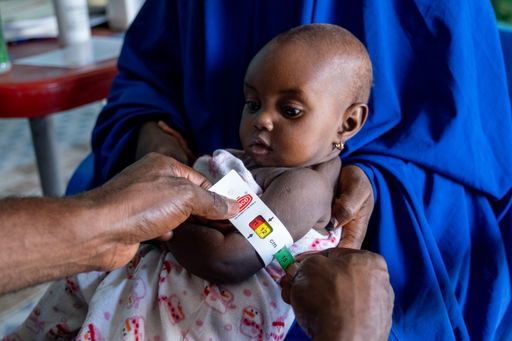ABUJA, Nigeria — The World Food Programme (WFP) has welcomed recent contributions from donors, including significant new funding from the United States, to support emergency food and nutrition assistance in Northeast Nigeria. This comes after the WFP warned in July that its operations were at risk of shutting down.
The conflict in the region has left over 5 million people facing acute hunger and more than 2.5 million children suffering from malnutrition. This new funding is crucial and will allow the WFP to keep 187 nutrition clinics open across the states of Borno, Adamawa, and Yobe. These clinics provide vital treatment to over 300,000 malnourished children and mothers.
“These contributions come at a pivotal moment for Nigeria and the wider region,” said David Stevenson, WFP Country Director in Nigeria. “Escalating conflict is driving farmers from their fields. Over the past nine months, WFP and its partners have documented more than three attacks each day on communities across the northeast, with farmers among the hardest hit. This disruption to food production has left families with no means to feed themselves, while those left behind face hunger, displacement, and the risk of recruitment by armed groups.”
As Africa’s largest democracy, Nigeria plays a critical role in safeguarding regional stability and preventing the spread of insecurity across the Sahel. The WFP says this funding will help it continue to advance humanitarian solutions that drive peace and production, helping to restore Northern Nigeria’s potential as the nation’s breadbasket.
While the support from the United States and other donors will sustain operations for the next three months, reaching 850,000 people with food assistance, this is a significant reduction from the 1.5 million people the WFP assisted in July. This reflects continued funding shortfalls. The WFP is now urgently calling on other donors, including the Nigerian government and the private sector, to help close the funding gap. Without additional contributions, operations will face further cuts, putting millions of people at risk of deepening hunger.





Add Comment